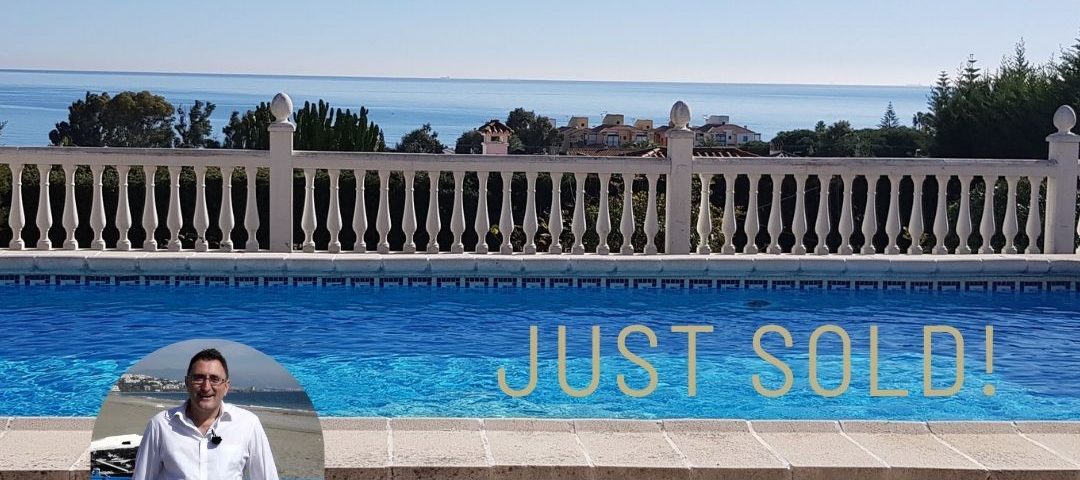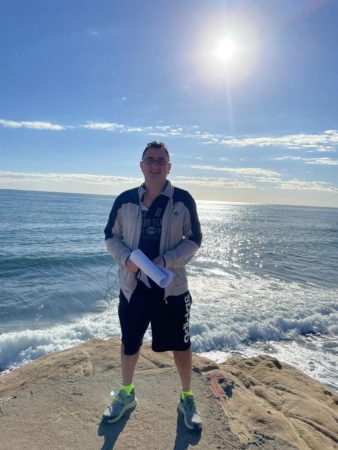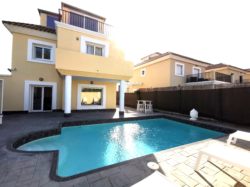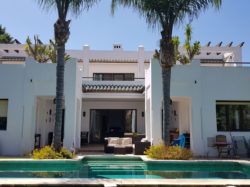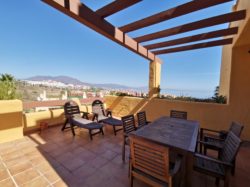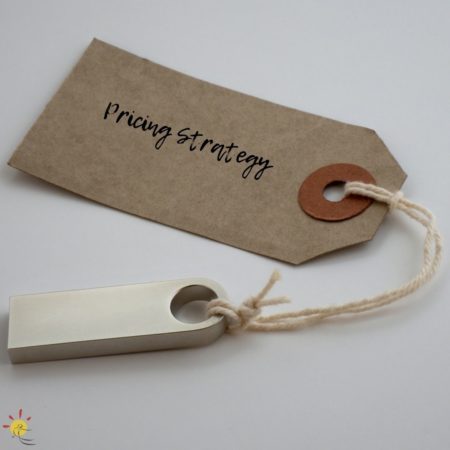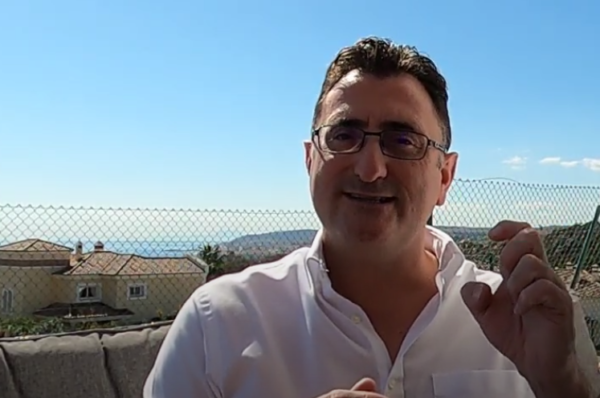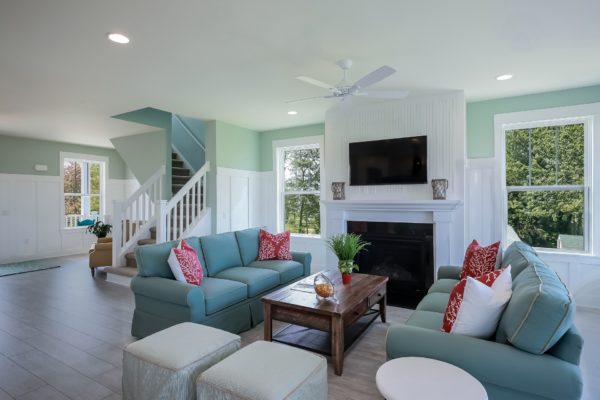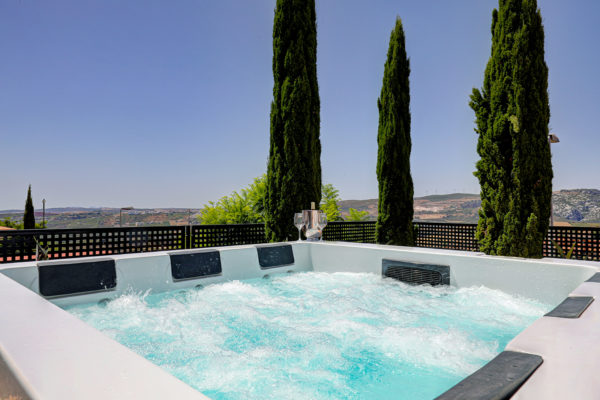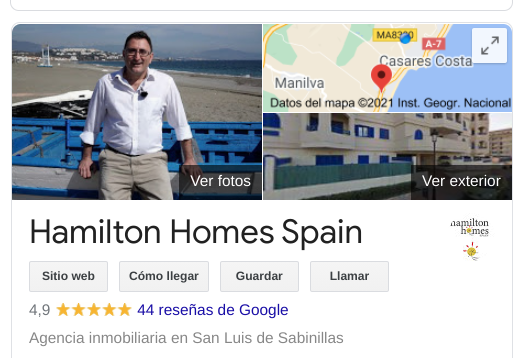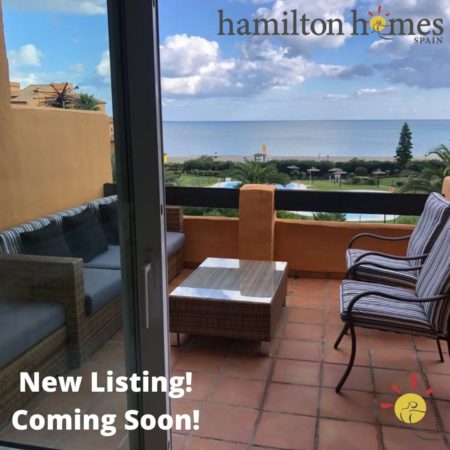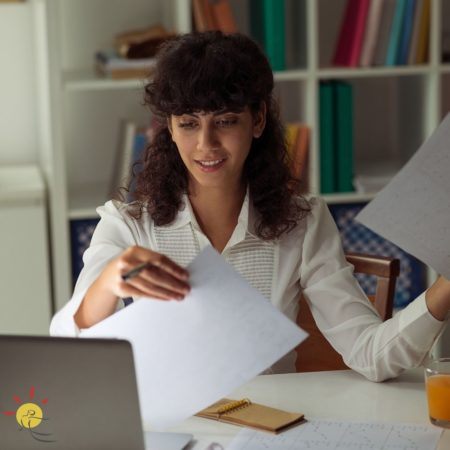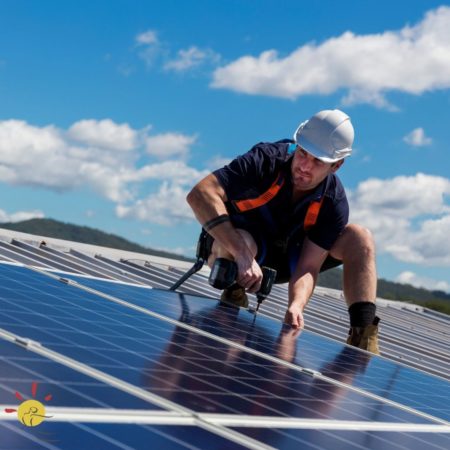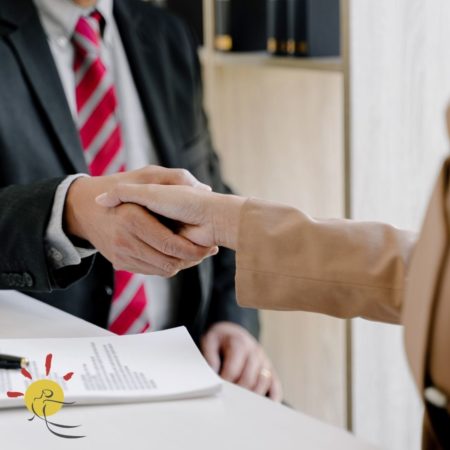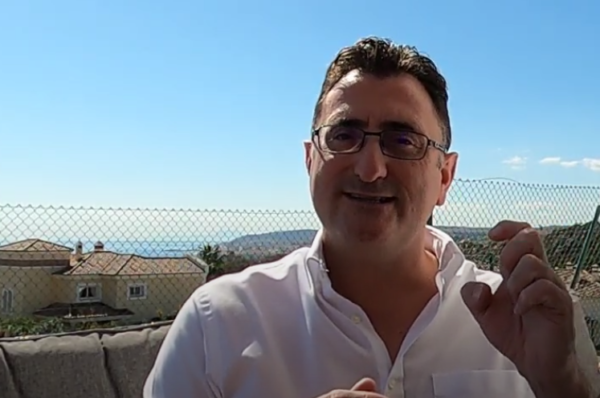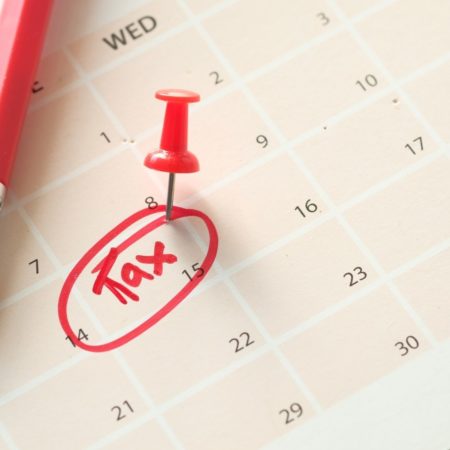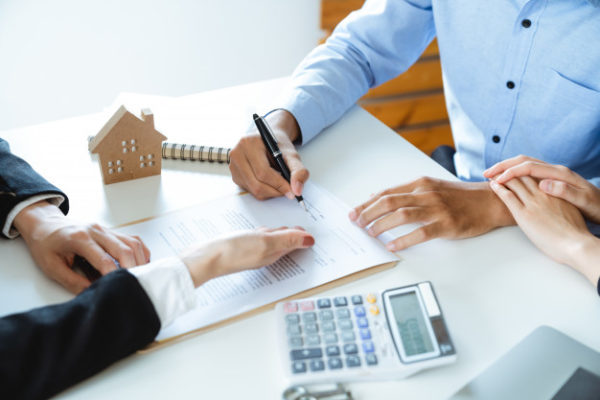Come Sell with Me! The Ultimate Guide to Selling a Property on the Costa del Sol.
Are you looking to sell your property on the Costa del Sol in Spain? This ultimate guide to selling in Spain will give you all the tools you need to get your property sold.
People often think that buying property is one of the most important decisions you will make in your lifetime – and indeed it is! However, we often under-estimate a seller’s journey, which can be equally as life-changing and exciting.
I have worked in Real Estate in the Costa del Sol for over 20 years. The one thing that I have come to realise is that if you go into your house sale with your eyes open, you are much more likely to end up selling your property and being happy with the end result. No nasty surprises and no unexpected bills.
Preparation is key
There are small things you can do to make the process go smoothly and avoid completion dates being postponed. You do not need to know the law by rote. It is just good to know what questions to ask your estate agent and lawyer so that you know what to expect.
So how do you start the process of selling a property in Spain? The aim of this guide is to give you a step-by-step approach to selling your property from valuing your property right through to listing it with an agent and completing a sale.
A lot of the preparation can be done from home so if you are thinking of putting your house on the market – you can start to get the ball rolling from anywhere.
Step 1: How much is your property worth?
So you have decided to make the move and sell your property, where do you begin? I would say a good starting point would be to get a feel for the market value of your property.
Every property has a market price determined by the forces of demand and supply. However, in practice, there are a number of external factors that can add or take from a property’s value. All these factors will enable you, alongside your agent, to fine-tune the price.
You can use a few simple techniques to calculate the market value:
1.Looking at what similar houses in the neighbourhood have sold for
A little local market research never goes amiss. It is always a good starting point. In order to get a realistic number, try to find out the actual price properties in your urbanisation have sold for, in recent times.

When I value a property, clients are often keen to tell me what price their neighbours’ properties are on the market for. However, we all know that a seller can ask for the price they like – getting it, is a whole separate thing. An asking price is not a clear indication of what the market position is.
2. Simple Rule of Thumb:
This is a system that bank valuers use when valuing a property for a mortgage proposal. Firstly they will calculate the price per square metre of build in your area/ urbanisation. They will then multiply this by the number of registered square metres. An up-to-date Nota Simple of your property will give you the registered number of square metres.
This is a process that many property portals use. Well-known portals such as Idealista or Rightmove use similar algorithms to ascertain whether a property is overpriced or underpriced. However, whilst these standardised calculators are useful and a good general indicator, they don’t take into account the unique aspects of the property in question.
For example, you may have two houses in the same urbanisation which have exactly the same number of m2 built. One may be refurbished with a brand new kitchen, bathrooms and have fully installed air-conditioning, whilst the other may have none of these qualities and need some updating. By sticking to this rule of thumb, both properties would value equally. However, in reality, you would expect the house that has been re-vamped to command a higher market price.
When clients ask me to come up with a sales price for their property, I use the Scientific measures that a bank uses as a starting point. I then add other factors into the equation to arrive at my final estimation.
Here are some of the things that I will build into my final valuation figure:
- The Condition of the House and building specifications
- The age of the property – if old has it been refurbished or does it need to be refurbished
- The location of the house within the urbanisation – is it on a corner plot? Is it frontline or second line? Are there views? What is the orientation of the property? Frontline sea or golf views will add a premium to the price.
- What else comes with the property? – Does the price include a storage room or parking?
- External Environment – is the community well-maintained? Is the property close to any electric or phone pylons? Is there a sewage plant nearby? Can you hear the sound of the road? Are there amenities nearby? Is the community gated?
- Surrounding area – what are the future plans for the area? Is there a new hotel, hospital, or school coming to the area? Is it close to amenities?
- Energy efficiency – how energy efficient is the house. How is the water heated? Does the property have solar panels or an aerothermal heat pump? Are the windows double-glazed?
Pricing Strategy
An agent’s role is to put together the different pieces and come up with a fair market price.
Once you have established a market value for your property, discuss the pricing strategy with your agent. Your pricing strategy will depend very much on why you are selling your property. Every seller is different and is selling for a different reason.
I like this to be a joint decision with my clients – it is good to know how quickly they need to sell, what the sale means to them. Is it their stepping stone to a new dream? Are they looking to get the best possible return and willing to wait for that or do they prefer to price the property to sell it now so that they do not miss out on another property they have their eyes on?
Hamilton Tip: Avoid the common pitfalls when selling your property in Spain
A common mistake is to follow the market rather than to lead the market. If you really want to sell, bite the bullet, be bold and price your property at the right price. Many sellers like to start high and wait to see if they get any offers. Often they will wait a year, ask me what they can do – cut their price to the original market value I originally suggested, and then sell. Doing this sadly gains nothing – you have just added a year of costs, mortgage payments, and expenses. Check out this example to see how this strategy can really backfire!
Step 2 – How can you get the most out of your property?
How should you present your property?

Selling can be an emotional experience. You may have formed a strong attachment to your property and it may be hard to let go. You may associate your property with fond lifetime memories. It can be difficult to separate the physical from the emotional. Despite the latter, the best exercise you can undertake, before putting your property on the market is to de-personalise it. It may sound harsh but it is a good start to getting used to the fact that one day you will have to part with the property. By de-personalising a house, you give a potential buyer the space to imagine their own home. You do not want them to feel as though they are stepping into someone else’s life, but instead, you want them to visualise their future life there. Check out the link below for more about this:
Sell your Spanish Home – De-Clutter
How can you add thousands to your sales price?
First impressions count. It is said that most buyers make up their mind whether or not they like a place within the first 30 seconds of entering.
Not every house can look like a show home but the simplest of actions can really make all the difference to a property.
Here are a few things that can really add to the value of your property. If you don’t want to enter into a price war with neighbours, make your property special. A small investment can go a long way.
It is the little things that count:
1.Give your property a fresh coat of paint
I thoroughly recommend using neutral colours.
2. Furnish the Property
If you have an empty property, furnishing it simply but elegantly to make it look like a show flat would make a big difference. Remember, most potential buyers come via the internet – taking photos of a furnished apartment is much easier than taking photos of empty rooms.
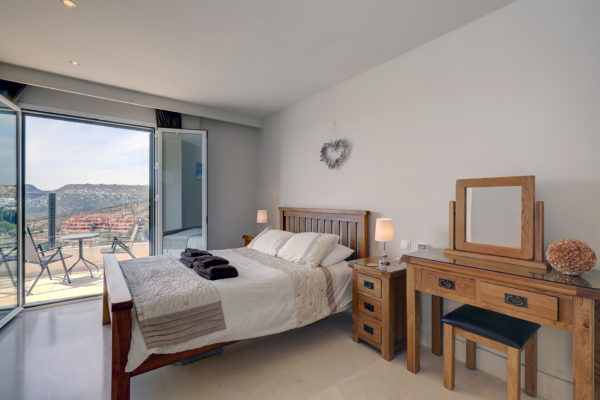
3. Add simple accessories
Keep the furniture simple but add little details like plants, cushions, a nice bedspread and candles to make it look special.
4. Enhance the outdoor area
Where possible try to ensure the outside areas of the property, particularly the entrance areas are kept presentable.
If you have a terrace, a hot tub, or lovely outdoor furniture will really add to the price you command. People are buying into a lifestyle – a hot tub on the terrace or an outside bar area can really allow buyers to get a feel for the Mediterranean lifestyle. If you have a garden, make sure you have some green lawn. I know that low-maintenance tiled gardens are practical but I have seen that a bit of green goes a long way!
5. A Good Clean
Even if you do not want to invest in anything else, making sure the house is clean is essential. It is absolutely incredible what a difference walking into a clean house makes. I have trialed and tested this on many occasions.
6. Make it smell good
Use air-fresheners and air your property. Do not underestimate what smell can do. If you are not in Spain and cannot open your property up often, I suggest you ensure that it is done from time to time to let the air flow through. A property that is closed up for a long time can have a musty smell. Also these days you can buy some very good air fresheners to leave a lovely smell in the property.
How far should you go if trying to add value to a property? At what point will you optimise your profit?
One of my clients asked me this question the other day. It is a really interesting question because ultimately it is about reaching the perfect balance.
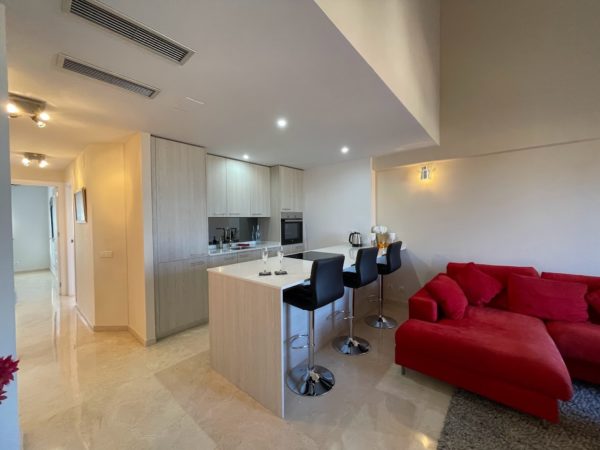
Stunnung Penthouse in Duquesa
Where should you invest the money?
If you are hoping to modernise the house, I would definitely say that bathrooms and the kitchen are definitely the most important places to start.
What about terrace and balcony enclosures? Will increasing the internal living space translate to increased price?
Sadly, contrary to what most people think, in my opinion, they do nothing to help the sale of a property.
When you live in Spain full time, you realise, that, whilst you spend lots of time outdoors, there are x number of months when you are indoors. That extra space is practical. Enclosing a solarium can mean an extra bedroom or a games room.
However, a big proportion of clients purchasing on the Costa del Sol, are from abroad and want sun, sun and more sun. The outdoor space promises them the lifestyle. Warm Summer evenings, out on the terrace and admiring the view- that is what so many really look for.
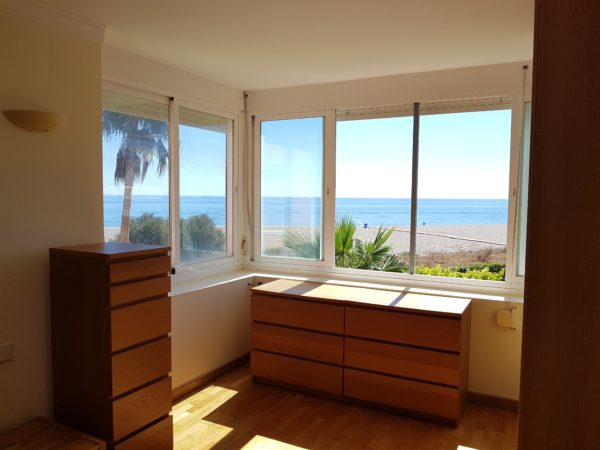
My Personal Experience
This happened to me personally when I sold my house in Manilva Beach. We had a small garden and decided to enclose two terraces upstairs. Our thinking was, we have lots of space downstairs, why not increase our living area? When we came to sell our house, the first thing the new owners did was re-open up the terraces!
Of course, if you invest in this for your own use and comfort, that is fine. There are many clients who are full-time residents who will probably appreciate it, so it will sell eventually .. it just won’t make it sell any faster and the cost will probably outweigh the amount extra you get back for it.
Another thing to bear in mind is that permanent extensions or enclosures that do not appear in the square meterage of the nota simple will not be counted when valued by the bank.
Register any permanent extensions
If you do add a permanent feature to your home, factor in the cost of registering the extra square metres – apply for a building license and ensure that you register it properly so that you do not have problems at the time of selling.
Glass Curtains – apartment in Casares
If you do want to make the most of an open area, come rain or shine, use a non-permanent structure like glass curtains that you can open completely or maybe add a nice awning.
Step 3 – Choosing an agent to sell your property
When choosing an agent to represent the sale of your property, it can be difficult to decide who to use and trust. It is often hard to differentiate between agents by just looking at their websites.
There are a large number of companies in the Real Estate Industry on the Costa del Sol, all trying to do the same thing!
How do I select an Agent?
-
Experience counts for a lot
When selecting an agency, make sure they understand the market well. If they have made it through the crisis of 2008 and Covid lockdowns, that is often proof enough that they are well established.
-
Location
What Geographic area does an agency cover? Ensure that your property falls into that zone. If an agent is closeby, they will be able to schedule more viewings and able to do them quickly and efficiently. They will also have local market expertise. Choose an agent that focuses on the specific area where your property is located rather than an agent that tries to cover the whole coast.
-
Marketing
Find out what marketing the agency undertakes. Often it is quality and not quantity that counts. Does the agent use property portals? Does the agency work with other agents in other areas? Is the agent part of a property sharing system (MLS)? How does the agent present the properties?
Does the agent use videos? Video tours are very important and will become more important in the future. Is the agent comfortable carrying out zoom calls and video tours? With restrictions in place from Covid 19, physically viewing properties is difficult. Agencies offering virtual viewings open up your property to many more possibilities.
-
Rapport and Trust
It is important to select an agent that you can work with. It is good to be able to bounce your ideas with the agent. Check out any reviews on google. Check out past customer loyalty – does the agent have repeat clients?
Should I select more than one Agency to represent my Property?
It is quality that counts most. You could list your property with every agent along the coast but it doesn’t mean that your property will sell any quicker. It will guarantee you stress and being overwhelmed by buyers who have not been qualified.
Personally, I believe that it is better to choose one agent who can focus their attention on your property. If the agent is part of the MLS system then your property will still be seen by thousands of agents, but you have the security of knowing that all viewings will be monitored and organised by one agent.
Hamilton Homes Spain
At Hamilton Homes Spain, we carry out two types of marketing. We do our own branded videos and window cards which we use on all our social media, but in addition to this, we also do unbranded materials that we send to other agents on our MLS system. This means that we give other agents who work with us access to all our resources. In effect by making us the exclusive agents, our role becomes that of a manager – we are able to vet potential clients. We hold a key and keep our sellers up to date with all movements and coordinate viewing times.
It is important that when you do give an agency exclusivity that you go in with your eyes open. I would recommend giving them exclusivity for a certain timeframe, like six months, and then decide whether to renew the contract or not, after that date. Marketing and advertising is time-consuming and expensive – if an agent has a property exclusively, they will focus much more of their resources on it.
It is also important that you are in communication with your agent. I like to work with my sellers – if something isn’t moving, why is it? What can we do to make things work? You and your agent need to act as a team. Transparency and honesty are a must.
Tip 1: Is it ok to rent a property that I want to sell?
If at all possible, I would suggest that you do not rent the property that you are trying to sell. It can be complicated to find suitable times to show a property that is occupied by a tenant. There is always a buyer out there for a property but it is about finding the ‘one’. This means that it is also a numbers game. The more people we show, the more likely we will find the ‘one’.
If the property is not rented, we can show it on the spur of the moment. Another agent may call me to view a property listing that I have and I may meet the clients and realise that I have the perfect thing for them – once the client leaves, it may be too late – so having the flexibility to show a property makes a big difference. Obviously, I understand that this is not always possible. If you do have tenants in the property, make sure that they are open to having viewings take place.
Tip 2: I live in the property? Should I stick around for viewings to answer any questions?
If you are living in the property that you are selling, I recommend that you leave the agent and potential buyers to view the property alone. Pop-out for a walk or a coffee while the viewing is taking place. We have had to do this anyway because of Covid protocols so that we are able to socially distance. However, I have noticed that giving potential buyers space, works. Clients do not feel rushed or as though they are imposing and going into someone else’s home. It enables them to give an honest opinion about a property if the owner is not there. It gives them a chance to visualise themselves living there. If there are any questions that need answering, we as agents will pass them onto you.
Step 4 – Ensure that you have the paperwork required in place
Your agent should ask you for this paperwork when listing the property.
Start getting the paperwork together as soon as you decide to sell. You do not want to find a buyer, then discover your property is not properly registered, or that a mortgage hasn’t been canceled. If you need anything extra, it may take a while and you do not want to lose a deal because you failed to prepare. Most issues are easily sorted. If you have any concerns, speak to your agent and lawyer. Don’t get overwhelmed by the jargon – this is merely a checklist and your agent and lawyer should guide you through the process. To find out more about these documents and what they are, check out the following link: Property Jargon Explained.
-
Nota Simple
Have an up-to-date Nota Simple (ordered within 3 months of the completion date). See our video on Nota Simples here.
-
Escritura
You will need your Escritura (title deeds) for the day of completion.
-
Licence of First Occupation
Every property must have a licence of first occupation. However, often older properties or villas may not have this final certificate, as they were not as important many years ago. Check whether you have one for your property once you decide to sell. If you have any problems, speak to your agent. If your licence was never issued, you will need to work with the lawyer you used for buying or ask your agent to refer you to a lawyer to apply and get this certificate. Please note that this process can take months, so it is important to apply as soon as you decide to sell.
-
Energy Performance Certificate
It became law to provide an Energy Certificate or CEE from 2013. If you bought your house after this you will likely have a copy of this certificate. Sometimes it is attached to your escritura, so check the appendices if you are unsure where you placed it. It is fairly easy to apply for a certificate and it is important you do so as soon as you decide to sell. It can cost anything between 100- 250 Euros, depending on the size of your property. Your agent should be able to recommend someone to carry out the inspection for you.
Proof that property is debt free:
-
IBI bills(paid)
Proof that your IBI (Impuesto sobre Bienes Inmuebles) bills are paid to date. Remember that if you have parking spaces and storerooms that are registered separately from your main property, you will need IBI bills that correspond to each of them. If you cannot remember what you have paid, ask your agent or lawyer to find out for you and get copies of the receipts. If any amount remains outstanding, it is important that you pay it prior to completion. It is customary practice, that even though the IBI bill is an annual bill, to do a pro-rata division of the bill for the year that you sell in.
-
Community Certificate
A community certificate is needed to confirm that all community fees are paid to the date of completion. You can speak to your community administrator who will provide a certificate for you to present on the day of completion. Contact your community administrator with ample time to ensure that they are able to
-
Mortgage debt certificate
If you have a mortgage on your property, you need to ensure that this is canceled on or before the day of signing. To ensure that this flows smoothly, you need to speak to your bank well in advance of the signing, so that they can issue a debt certificate. The time that it takes to get a debt certificate issued depends on which bank you are dealing with. It can take anything from a week to months. They will then need to register that the debt has been paid in front of a notary. They can do this before or on the date of completion. If on the day of completion, you need to give them lots of notice and ensure that they will be present. I have seen many signings delayed because the bank has been unable to attend.
-
Utility Bills
A copy of your latest utility bills and proof of payment.
Useful to have:

-
Community Meeting Minutes
In addition to the above it is useful to have the minutes of the last community meeting to hand. Potential buyers and their lawyers will ask to see these.
-
Inventory
Make up an inventory of the furniture you intend to leave.
Check out our blog on Property Jargon Explained for more info on these terms:
Step 5 – Choose a lawyer to represent you
Many sellers believe that it is unnecessary to choose a lawyer. They tend to get a sense of security in the fact that the buyer’s lawyer will take on board all the necessary checks and that they should just turn up and collect their cheque on the day of completion.
In actual fact, I recommend using a lawyer for sales for numerous reasons. If you live away from Spain, there is all the more reason to give a lawyer a power of attorney so that they can sign on your behalf. You do not want your deal to fall through because you cannot make it over on the day of signing. The importance of this has only become clearer over the last year with all the border controls and restrictions.
If you used a lawyer to purchase the property and are happy with contracting that lawyer again, I would recommend that option, as you will have built up a relationship with them and they should already have most paperwork on file.
Chooses a lawyer that knows the municipality
In Spain, each province and municipality operates differently, so it is good to use a lawyer who knows the property registry office, town hall and notary in the municipality where the property is located. I would also advise, that you select a lawyer who speaks the same language as you and has worked with other clients who come from your country of residence. This will be beneficial when calculating tax liabilities etc.
Step 6 – Understand the costs of Selling your Property in Spain
One of the things I like to do with my clients is to go through the figures, estimate the different taxes and give them an idea of what they can expect to take home if they sell their property at the price they want.
I feel that this is good practice so that, you, as a seller know exactly where you stand. Knowing this also helps to plan ahead and makes the negotiation process easier. Here is a list of costs to consider – don’t get overwhelmed by them. Your agent and lawyer are there to walk you through the process:
Mortgage Cancellation Fee
If you need to cancel a mortgage, there are 2 costs to bear in mind. 1- check with your bank what cancellation costs they charge. In Spain, it is not enough to simply pay your bank, you must also pay Notary and land registry fees in order to release the charge from your property. Where possible it is advisable to pay off your mortgage and cancel the charge before selling. I often go on my listing appointments and chat with the owners. They tell me that their mortgage has been cancelled and low and behold I find that the charge still exsists on their property.
Estate Agent Fees
Typically, in Spain, these fees will be 5% plus IVA ( VAT).
Legal Fees
Typically these are around 1% plus IVA
Plusvalía
The Plusvalia is a land tax. It is based on the incremental value of the land which your property occupies, over the amount of time you have owned it. The Plusvalia is calculated on each “full year” of ownership. When selling your property it is important to check the exact date of purchase and try and sell before the anniversary date. If you sell 1 day after the anniversary date you will have incurred 1 full year more of plusvalía. Worked example:
Purchase Date: 5th July 2010
Date of sale: 4th July 2021 – nº of full years of ownership = 10 years
Date of sale: 5th July 2021 – nº of full years of ownership = 11 years
The difference of 1 day can amount to a substantial increase in the payment owed.
The plusvalia calculation is capped at 20 yrs of ownership.
The Plusvalia must be filed at the local patronato office within 30 days of the completion of your sale. The tax bill can take 6months to 1 year to arrive. Your agent and lawyer should be able to give you an estimate for the plusvália tax.
Capital Gains Tax
The tax system in Spain is complicated. I have included some information here just to give you an idea of how it works. It is always good to talk it through with a professional if unsure. I have attached some links below if you wish to read more about the subject.
The Capital Gain is the net profit you make from the sale of your property.
Net Profit = Real Sales Price – Real Purchase Price
- The real sales price is the price that you sell for and will appear on a new escritura. From this you can deduct selling costs such as agent fees, legal fees, plusvalía. Some significant property improvement costs are also deductible. But wear and tear costs and replacement costs are not. You will need to provide invoices with VAT to prove that these costs were paid. There is no exact science as to what home improvements are allowed. It very much depends on the government employee who is handling your tax return. I have seen in cases where clients have done a new kitchen or bathroom and the expense has been allowed while in other cases it has not.
- The real purchase price is the price that you bought the property for and is recorded on your escritura. To this, you can add key costs involved such as notary costs, legal costs, transfer tax, IVA etc.
Non-Residents
CGT is set at a flat rate of 19% of your profits for non-Spanish residents who are members of the European Union and 24% for citizens outside the EU.
If you are non-resident, on the day of completion 3% of your final sales price will be retained by the buyer as retention for part of your CGT liability. It is the buyer’s responsibility to retain and pay this on the seller’s behalf (using the modelo 211) within 30 days of completion. You will be required to file a tax return (modelo 212) to pay the rest of the CGT applicable within 3 months of completion at the notary. If the 3% retention is more than your tax liability, you can put in the necessary paperwork to reclaim the tax back.
Spanish Residents
You will be considered a Spanish fiscal resident if you live in Spain for over 6 months or anything more than 183 days. If you are a tax resident in Spain, the calculation is more complicated and works on an upward sliding scale ranging from 19% – 23% depending on the amount of net profit.
I am always happy to chat through this with sellers and help them calculate their tax liability. In some cases it is advisable to seek official advice from a qualified tax accountant. It is important to know what you need to pay – it will help you to be in a better position to negotiate when an offer comes your way
There are some CGT exemptions:
1.Primary Residence – Main Home
In order to constitute the main home, you have to have lived in it for 3 consecutive years.
If you sell your main home and then re-invest that money directly into another primary residence, you can be free of any Capital Tax Payments. This re-investment must take place within a certain timeframe – either two years before or two years after you sell your main home. Once you have your main home, you must live in it for a minimum of a year and cannot sell it for at least three years. If you do, you will have to pay the taxman back.
2. Residents who are over 65
If you are over 65 years, you do not need to pay CGT if you sell your primary residence, regardless of whether you choose to re-invest it in another primary residence. In order to qualify for this, you must have lived in the home for at least 3 years before you sell the property.
3. Properties bought before 1995
To qualify for this, the property must be sold for less than 400,000 Euros.
If you purchased your property prior to 1995, you will also be able to pay a reduced rate of tax. This reduced rate of 11% is payable made on any gain made prior to 20th January 2006. You will need to pay the full rate of tax on any gain made in the years following that.
Useful links to find out more about taxes when selling in Spain:
https://balcellsgroup.com/taxes-when-selling-a-property-in-spain/
Find out more about Capital Gains Tax in Spain here
Step 7 – The sales process
1. Reservation /Holding Deposit
Once you have accepted an offer, the first step in the process is to get a non-refundable deposit. This deposit signals to you, the seller, that the buyer is serious and once you receive this deposit, you should take the property off the market. If after this point, the buyer changes their mind, they will lose their deposit. If you as a seller, change your mind, you will, according to Spanish law, have to pay back twice the amount of the deposit paid.
Your agent will draw up a simple reservation contract that will lay out the timeframe and payment schedule. The time to completion will depend on you and your buyer’s circumstances – do you need time to move out? Does the buyer need a mortgage?
Both buyer and seller sign the contract. At this point, the buyer pays the deposit. In general, the initial reservation deposit is 6,000€.
After the buyers pay this deposit, there is a period of 10 – 14 days where the lawyers will do their conveyancing and ensure all paperwork is up to date and correct.
2. The private purchase contract (Contrato de Arras)
The time between the reservation deposit and completion will vary. On average, if all paperwork is in order and if the buyer is a cash buyer, it should take around 6 weeks. However, often there are delays. Here are some instances where you may have delays:
- Delays in the mortgage process
- The buyer does not have NIE numbers and there is a long wait time till they can get an appointment
- The seller needs to register their property
Come Sell with Me!
If you are interested in listing your property, why not contact us at, prop@hamilton-homes.com, to start this journey. Even if you are not in Spain at present and wish to sell a property, we can organise a way to list your property and start the ball rolling virtually.

